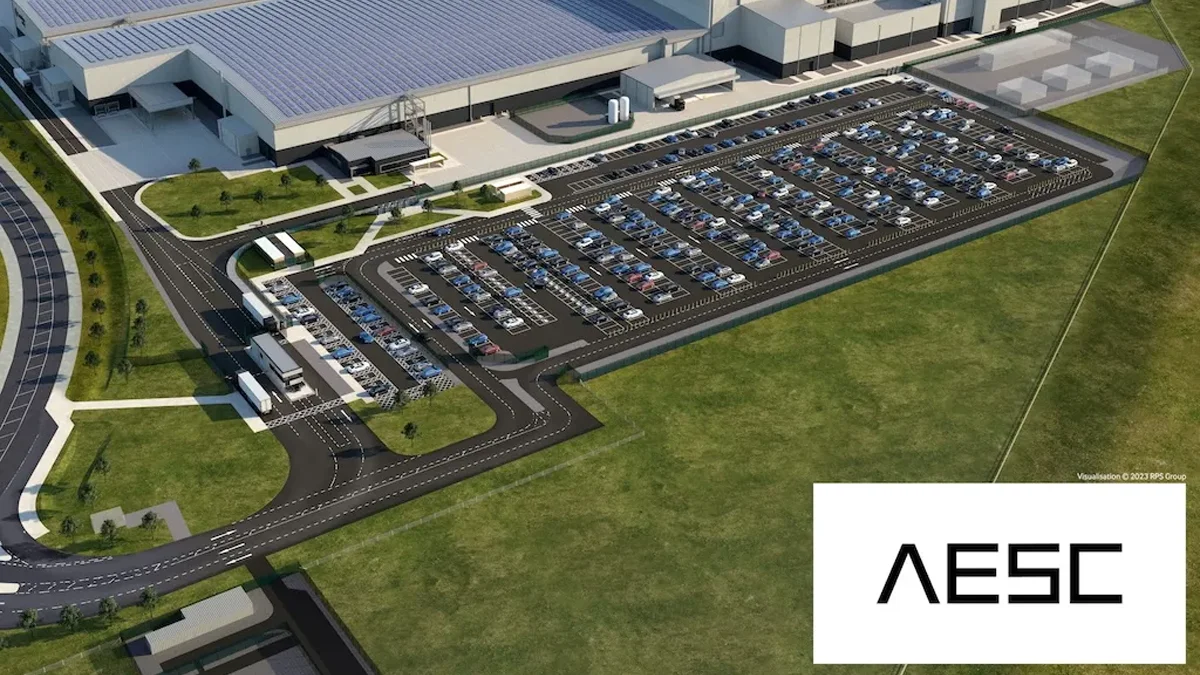Necessary Always Active
Necessary cookies are required to enable the basic features of this site, such as providing secure log-in or adjusting your consent preferences. These cookies do not store any personally identifiable data.
|
||||||
|
||||||
|
||||||
|

The UK has announced a £1 billion ($1.33 billion) funding deal towards production of electric vehicle batteries, Reuters reported. The new deal will see Japan-based battery maker AESC set up a production factory in Sunderland in Northern England.
According to the UK government, the AESC gigafactory funding will facilitate production of batteries that can power 100,000 electric vehicles annually. At full capacity, the plant is expected to produce up to 15.8 GWh in battery power supply, which is six times the current UK gigafactory capacity.
AESC announced the UK gigafactory investment after it secured a £1 billion debt funding deal. The deal is backed by financial guarantee from the UK government to the tune of £680 million. This financial guarantee will be provided by the UK Export Finance and the National Wealth Fund – both state entities.
The financial guarantee from National Wealth Fund to AESC will replace the £200 million short-term loan unveiled in January 2024 by the UK government. The objective of the £27.8 billion fund is to support mega projects such as gigafactories, steel, and ports through loans, financial guarantees, and equity investments.
AESC will also receive £320 million in debt funding from private investors and equity from businesses. These include banks like SMBC Group, Standard Chartered, BBVA, HSBC, and Societe Generale.
AESC will use the £1 billion EV investment to finance construction of buildings and operate the new plant. Once operational, the Sunderland EV battery manufacturing plant is expected to create upwards of 1,000 jobs. UK Chancellor of the Exchequer, Rachel Reeves said the AESC EV factory funding deal will catalyze growth in UK industries.
“We are going further and faster to boost our industries’ resilience and encourage their growth as part of our Plan for Change, and this investment follows hot on the heels of yesterday’s landmark economic deal with the US which will save thousands of jobs in the industry. This investment in Sunderland will not only further innovation and accelerate our move to more sustainable transport, but it will also deliver much-needed high quality, well-paid jobs to the North East, putting more money in people’s pockets,” she said.
AESC shares similar sentiments. The company holds that its latest investment in the UK will enable the country to expand its EV market.
“This investment marks a key milestone in AESC’s ongoing efforts to support the UK’s path towards decarbonisation and the expansion of its EV market,” AESC chief executive Shoichi Matsumoto said.
Britain’s EV funding for the Sunderland plant is not the first mega investment for Japan. Nissan, a Japanese vehicle manufacturer, operates the UK’s largest car production plant in Sunderland. In 2023, the company unveiled a major investment in the factory to produce EV versions of two of its vehicles.
The UK Business and Trade Secretary Jonathan Reynolds views the £1 billion electric vehicle funding as a vote of confidence in the country’s growing EV production .
“We’re backing our world-class car industry, and this investment is yet another vote of confidence in the North East’s thriving auto manufacturing hub which will secure a thousand well-paid jobs and boost prosperity across the region. Our modern Industrial Strategy will drive this growth even further, powering our high-potential sectors like advanced manufacturing so we can deliver jobs and investment in every corner of the UK and make our Plan for Change a reality,” he said.
News of the AESC EV factory in Sunderland came a day after the US and the UK settled on a trade deal that will reduce import levies on aluminum, steel, and vehicle imports. In the new deal, the US will reduce import duty on 100,000 UK-made vehicles from 27.5% to 10%.
The US constitutes Britain’s largest export market for vehicles with 2024 exports exceeding £9 billion. UK Prime Minister Sir Keir Starmer said the US-UK trade deal will protect businesses and help in retaining thousands of jobs.